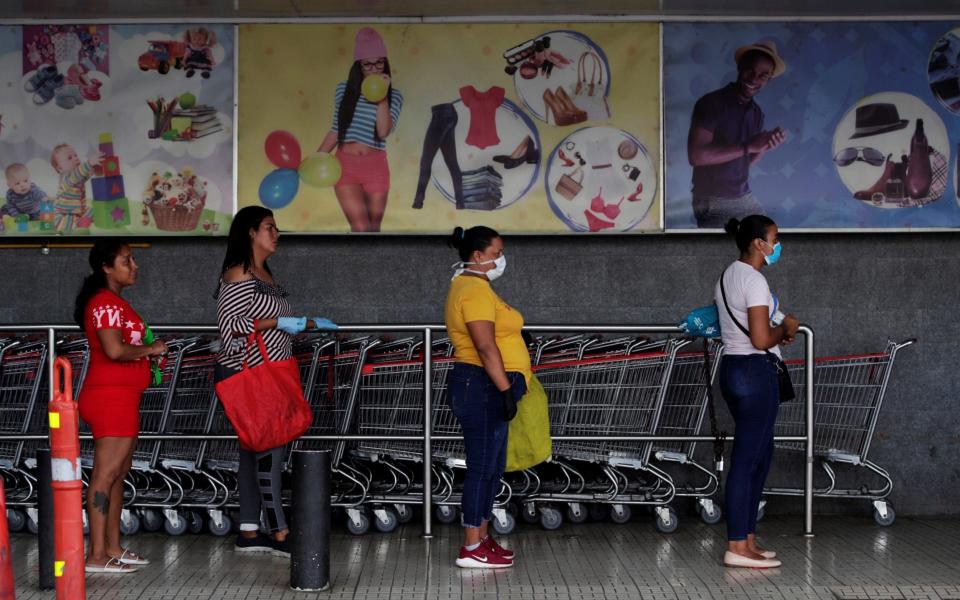Women more willing to comply with lockdown, Panama's sex-segregation experiment suggests


Women in Panama, one of the few countries that implemented a sex-segregated lockdown, appear to be more willing to comply with lockdown than men, according to a new study.
In response to the Covid-19 pandemic, a small number of countries in Latin America introduced gender or sex-segregated mobility policies. However Panama was the only one to introduce a nationwide policy that held throughout the entirety of the lockdown period and has been seen as a success - the country had just over 30,000 cases and around 1,000 deaths.
In what has been considered one of the most aggressive responses to Covid-19 in Latin America, Panama's lockdown was based on an individual’s sex, as listed on their national identification card or “cedula”.
Women were allowed to leave their homes on Mondays, Wednesdays and Fridays whereas men were allowed to go out on Tuesdays, Thursdays and Saturdays.
Using anonymised GPS data from the country between February 15 and May 29, researchers at the London School of Economics found that there was less public movement on women’s days.
The study, not yet published, recorded engagement with five major categories: retail and recreation, grocery and pharmacy, transit stations, parks and the workplace. While public mobility was lower on women’s days in all areas compared with men’s, this difference was particularly prevalent in visits to grocery and pharmacy stores - a result that researchers found surprising, and at odds with media accounts from Peru highlighting longer queues outside supermarkets on “female” days.
For example, up to May 13, visits to grocery and pharmacy stores were 54.5 per cent lower than before lockdown during women’s days, compared to 41.5 per cent lower than on men’s. Visits to retail and recreation were 77.8 per cent lower on women’s days, against 73.4 per cent on men’s.
The authors of the study suggest a number of reasons for the surprising findings. They said that men may be more willing to go shopping if it was the only way they could leave the home.
“We found that women went out less than men, and this was surprising to us, as gender analysis usually reveals the domestic burden falling onto women,” said Dr Clare Wenham, assistant professor in global health policy at LSE.
“We came up with a range of hypotheses for why this might be – is it that women are better at following public health guidance than men?
"Is it that actually, going to the grocery store becomes this new desired activity, when there’s nothing else you’re allowed to go out for, and thus represents a new source of bargaining between couples, and the fact that men ‘win’ this bargain reveals the perpetuity of gender norms and the patriarchy,” she told the Telegraph.
“Or is that women are simply too busy doing everything else domestically, including the childcare, which prohibited them from leaving the house as much. The study is interesting because it goes against expectations.”
As the study points out, research has shown already that women face a “double burden” as a result of the pandemic: not only is 70 per cent of the global healthcare workforce women, putting them at greater risk of infection, but lockdowns also have a significant impact on women’s access to essential health services.
The report also highlights the burden of “social reproduction” on women during a pandemic, referring to global patterns of invisible - and often devalued - work that is usually carried about by women, such as agricultural labour, childcare and household maintenance.
“The worry is that in locations where the public/private divide is greater, this may have a longer-lasting effect on women’s economic empowerment,” said Dr Wenham.
“In the wake of the Ebola outbreak in West-Africa, women returned to work considerably later than men, mainly because they were undertaking the additional childcare associated with quarantine, and this may ring true here, if women are undertaking the childcare, unable to be mobile whilst men are out and about,” she added.
Another issue raised by the study is the impact of sex-segregated lockdowns on the transgender and non-binary community. Early reports from Human Rights Watch suggest that transgender individuals specifically have suffered from discrimination when leaving their homes on days that were in accordance with their gender identity.
“The policy has failed Panama’s trans and non-binary community,” said Liana Rosenkrantz Woskie, one of the authors of the study. “We need a much closer look at how Covid policies utilize citizens’ identities, or erasure of those identities, in ways that might worsen existing societal inequalities, particularly when borne out through law enforcement."
Protect yourself and your family by learning more about Global Health Security

